Written By Kevin Fobbs and Susan Swift | Oct 26, 2021 | Courtesy of CommDigiNews

Image free download from https://wallpaperose.com/jesus-halloween-pumpkin.html
WASHINGTON: Are you one of the many Christian families seriously torn between their Christian faith and Halloween trick-or-treating, parties, and events? Some 70 percent of Americans celebrate some form of Halloween according to the Statista Research Department. In 2021, an estimated 65 percent of Americans plan to celebrate. Christianity is shrinking dramatically amongst Millennials and Generation Z. According to a 2019 Pew Study, the U.S. is steadily becoming less Christian.
Is Halloween canceling Christianity in 21st Century America for the next generations? Is there a place in 2021 for Christ’s presence at Halloween when America’s focus is on horror and slasher movies?
What does Halloween mean for Christians in 2021 and is there a conflict with the Christian faith?
Millions of Americans will spend billions of dollars on Halloween costumes, decorations, and parties. In fact, many Americans will devote months planning for the one-day event, and parents will search shops to select the perfect costume. Will that same parent spend even half of that time searching for the perfect opportunity to join their child in a Christian act of charity?
What is really happening in the nation built upon Christian faith, when demons, goblins, and trick-or-treat candy sacks are more important than one act of sharing faith in action?
Many Christians have arrived at the conclusion that Halloween is not seriously considered an abandonment of the Christian faith.
In fact, many Christians will justify the celebration of Halloween by rationalizing their own non-demon, non-goblin, non-evil influence activities. This is their proof that they only like the fun part of Halloween. Is that the sort of proof that a Christian would submit to God if he or she were standing before Him? Others will justify their Halloween celebration with a claim that there is a Christian connection to Halloween
Is All Saints’ Day the Halloween Christian Connection or an Excuse?
1 Timothy 4:1 “Now the Spirit expressly says that in later times some will depart from the faith by devoting themselves to deceitful spirits and teachings of demons.”
On May 13, 609 A.D., Pope Boniface IV dedicated the Pantheon in Rome in honor of all Christian martyrs. Additionally, the Catholic feast of All Martyrs Day was established in the Western church. According to History,
“Pope Gregory III later expanded the festival to include all saints as well as all martyrs, and moved the observance from May 13 to November 1.”
So, By the 9th century, the influence of Christianity had spread into Celtic lands, where it gradually blended with and supplanted older Celtic rites.
In 1000 A.D, the Catholic church made November 2nd All Souls’ Day, a day to remember and pray for the departed souls in Purgatory.
“It’s widely believed today that the church was attempting to replace the Celtic festival of the dead with a related, church-sanctioned holiday. All Souls’ Day was celebrated similarly to Samhain, with big bonfires, parades and dressing up in costumes as saints, angels and devils. The All Saints’ Day celebration was also called All-hallows or All-hallowmas (from Middle English Alholowmesse meaning All Saints’ Day) and the night before it, the traditional night of Samhain in the Celtic religion, began to be called All-Hallows Eve and, eventually, Halloween,” explained History.
As America grows, does Halloween emerge as a holiday without Christianity?
For nearly three centuries Halloween has taken some celebratory form in America. Strict Christian intolerance to mystery, magic, superstition and pranks associated with Halloween kept its acceptance at bay. Many religious leaders in colonial days believed that the holiday had its origin in the occult. For them to celebrate Halloween was a tribute to Satan.
In fact, All Hallow’s Eve stems from when pagan’s felt the door between the two worlds open. They dressed their children to look hideous in order to make them less attractive to the ghouls that might pass from the darkness to the light. According to History.com:
The tradition originated with the ancient Celtic festival of Samhain, when people would light bonfires and wear costumes to ward off ghosts. In the eighth century, Pope Gregory III designated November 1 as a time to honor all saints. Soon, All Saints Day incorporated some of the traditions of Samhain. The evening before was known as All Hallows Eve, and later Halloween
As the centuries passed, some Christian leaders would say that Halloween was gaining momentum for superstitions, demonic societal influences. End result: Christianity was losing. With each wave of immigrants arriving at America’s shores, they brought with them their own variations and customs associated with Halloween. Many of those customs were added to the Halloween melting pot.
In fact, History reports,
“In the second half of the 19th century, America was flooded with new immigrants. These new immigrants, especially the millions of Irish fleeing the Irish Potato Famine, helped to popularize the celebration of Halloween nationally. At the beginning of the 20th century, “Halloween parties for both children and adults became the most common way to celebrate the day. Parties focused on games, foods of the season and festive costumes. Parents were encouraged by newspapers and community leaders to take anything “frightening” or ‘grotesque’ out of Halloween celebrations.”
But, for Christian leaders in the early 20th century, there still was the legitimate scriptural question: Is Halloween based on godly themes such as the idea of peace, freedom, and salvation or does the holiday bring to mind feelings of fear, oppression?
That question is more pressing today as the disconnect between the 19th century traditional, Christian celebration and today’s emphasis on the occult grows.
What does Halloween mean to you may answer your Christianity Halloween Conflict?
If you consider yourself a logical person, then you should ask yourself what does Halloween mean to me? What is my Christian faith and is this a celebration that is uplifting for me and my faith? After all, Christianity does not take a timeout at the Halloween holiday door. Isn’t it time to return All Hallows’ Eve to its original purpose, namely, to celebrate Christ’s victory over sin and death through acknowledgment of His saints in heaven?
Philippians 4:8 “Finally, brethren, whatever things are true, whatever things are noble, whatever things are just, whatever things are pure, whatever things are lovely, whatever things are of good report if there is any virtue and if there is anything praiseworthy—meditate on these things.”
Parents may do well to share their Biblical concerns about Halloween with their children.
Their kids may have sincere questions about Christianity faith and the celebration. According to Bible Info, it may be important for parents to explain that Halloween is not found in the Bible. Rather, it was incorporated into early church holy days.
The site emphasizes that reflection upon Halloween—its origins and what it stands for is essential. Also question what lies below the surface of this holiday’s celebration.
Can Halloween be meaningful for 21st Century Christian parents?
What activities can children and parents do to demonstrate a positive Christian act or action during Halloween? Every act done for Christ’s sake can become a teachable moment for a child.
2 Timothy 3:16-17 : “All Scripture is breathed out by God and profitable for teaching, for reproof, for correction, and for training in righteousness, that the man of God may be competent, equipped for every good work.”
Many families across America have begun to embrace the idea of using Halloween as an opportunity to share their Christian Faith. The Billy Graham Evangelistic Association has offered some creative ideas for using Halloween to share Christ — for example, “some Christians give Gospel tracts along with treats to children who come to their homes and make Halloween an opportunity to witness for Christ. Others offer safe places for lighthearted fun.”
Other families will spend time at a senior center or a homeless shelter and provide meals, gifts, and bibles for recipients. Halloween will be celebrated this year on Sunday, October 31. This is an opportunity for families, church choirs, and children to host a “Giving of the Holy Spirit” party after services.
Many Catholic schools and homeschool groups celebrate with an All Saints’ Day pageant in which children dress up as their favorite saint or martyr. Others celebrate the day with parties and games with Biblical themes, according to Catholic Icing,
Proverbs 22:6 “Train up a child in the way he should go; even when he is old he will not
depart from it.”
There may be a silver-lining in reenergizing Christianity on Halloween.
According to a 2019 Pew Study, the U.S. is steadily becoming less Christian and less religiously observant as the share of adults who are not religious grows. While three-quarters of Baby Boomers (76%) regard themselves as Christian, “only half of Millennials (49%) describe themselves as Christians; four-in-ten are religious “nones,” and one-in-ten Millennials identify with non-Christian faiths.
The Christian call to action is clear. Therefore, every family that shares a Christian-based message or action on Halloween can re-energize Christianity. Silence to Christ’s message on Halloween means one more part of America’s Christian heritage is canceled.
Silence to Christian faith on Halloween is Betrayal.
A resource for young children: Christian Pumpkin Carving Activity & Book
*******************

Shut yo Mouth
If you want to know the truth about American Black History, get woke to what Cancel Culture is purposely hiding. Democrats are playing the race card to commit historical genocide. It’s all revealed in Shut Yo’ Mouth! How the Left Plays the Race Card to Silence Conservatives and How to Stop It.
It’s probably the most dangerous book liberals, BLM, and Antifa do not want you to read.
About the authors:
Kevin Fobbs began writing professionally in 1975. He has been published in the “New York Times” and has written for the “Detroit News,” “Michigan Chronicle,” “GOPUSA,” “Soul Source,” and “Writers Digest” magazines. In addition to the Ann Arbor and Cleveland “Examiner,” “Free Patriot,” “Conservatives4 Palin,” and “Positively Republican.” The former daily host of The Kevin Fobbs Show on conservative News Talk WDTK – 1400 AM in Detroit is also a published author. In addition, his Christian children’s book, “Is There a Lion in My Kitchen,” hit bookstores in 2014.
California PolitiChick Susan Swift Arnall is a lawyer, wife, and conservative mother of seven children. Since her impassioned call into Rush Limbaugh’s radio program in 2009, Susan has given political commentary on radio and blogs and was invited in 2010 by Andrew Breitbart to write for his young website Big Journalism. She has written over 60 published articles for Breitbart.
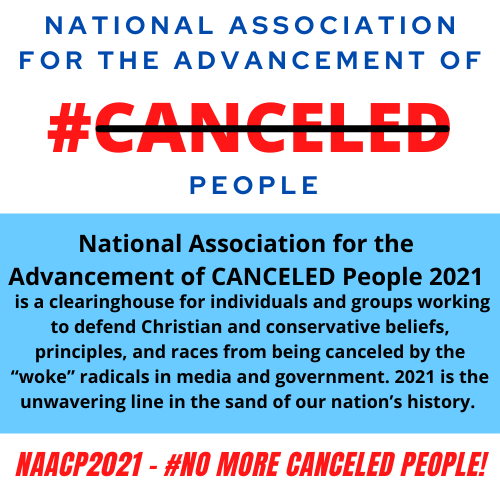




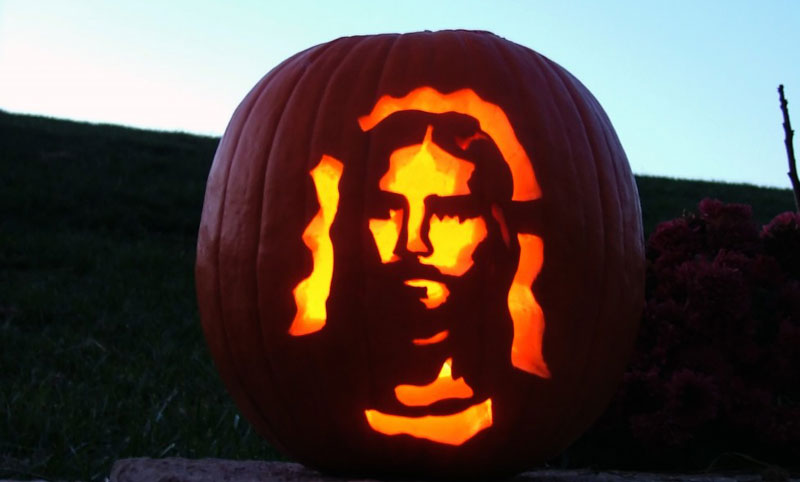
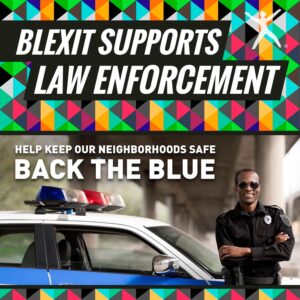
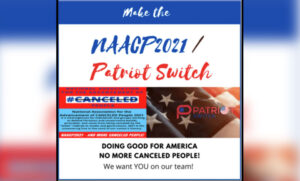
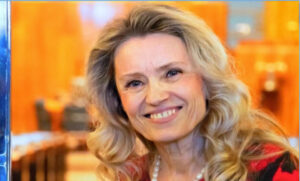
More Stories
Creating a Patriot Family Economy
Bible Verses are not hate speech: Finnish MP acquitted of all charges
America’s Families need a Patriot Switch to Beat Back Biden inflation